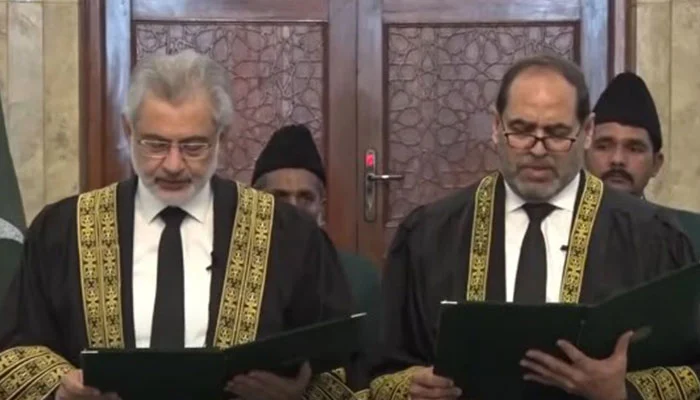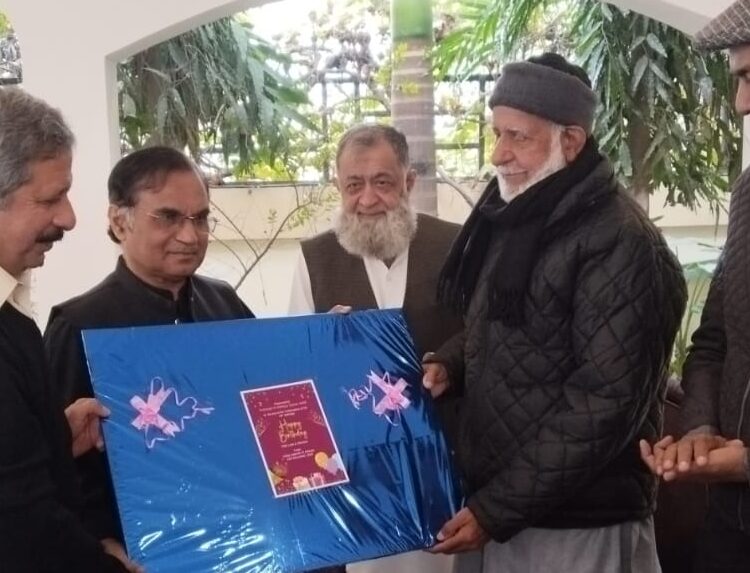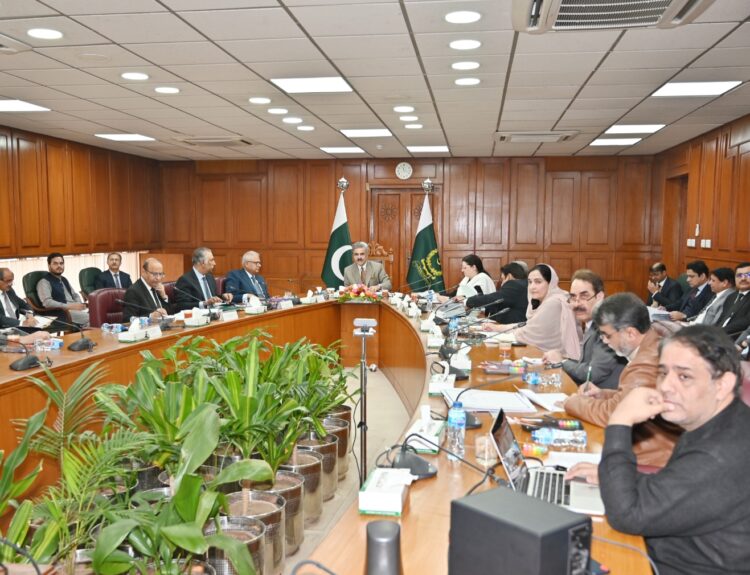Justice Naeem Akhtar Afghan Monday was sworn in as a Supreme Court judge in the oath-taking ceremony administered by Chief Justice of Pakistan (CJP) Qazi Faez Isa in the apex court in Islamabad.
The development comes after former president Arif Alvi last week, had approved the appointment of Justice Afghan, who was serving as Balochistan High Court chief justice, to the country’s top court under Article 175(A) of the Constitution.
Meanwhile, Justice Muhammad Hashim Khan Kakar is poised to become acting chief justice of the Balochistan High Court (BHC), under Article 196 of the Constitution following Alvi’s approval, media reported.
On Friday Justice Malik Shehzad Ahmed Khan was also sworn in as the Lahore High Court (LHC) Chief Justice following the ex-president’s approval.
With Afghan’s elevation as a top court judge, the number of judges of the apex court stands at 14 with a further three vacant posts in the apex court. He has joined the CJP Isa, Justice Mansoor Ali Shah, Justice Munib Akhtar, Justice Yahya Afridi, Justice Amin-ud-Din, Justice Jamal Khan Mandokhail, Justice Muhammad Ali Mazhar, Justice Ayesha A Malik, Justice Athar Minallah, Justice Hasan Azhar Rizvi, Justice Shahid Waheed, Justice Mussarat Hilali and Justice Irfan Khan.
Who is Justice Afghan?
Born in 1963, Justice Afghan is the son of a retired government servant and holds a degree in Economics and Statistics and an LLB from Degree College Quetta and University Law College Quetta, respectively. Enrolled as an advocate of BHC in 1989 and an advocate of the SC in 2001.
As per the judge’s profile on the SC website, Afghan “practised law for 21 years before the subordinate courts, BHC, Federal Shariat Court and the apex court during which he conducted innumerable criminal, civil, and constitutional cases which have been reported in law journals.”
In 2011, he was elevated as an Additional Judge of the BHC followed by his appointment as a judge in 2012 and eventually as the province’s top court’s chief justice in 2021. He has previously served in various capacities and roles such as a member of the Alternate Dispute Resolution (ADR) Committee, chairman of the Building Committee, chairman of the Committee for Utilization of Funds under the Provincial Judicial Development Fund (PJDF), member of the National Judicial Automation committee and others.






